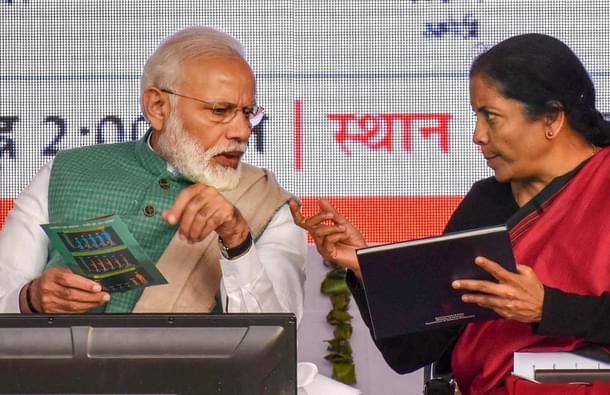Insta
Modi Govt Moves To Exorcise The Ghost Of Retrospective Taxation, Introduces Bill In Parliament To Amend IT Act
Swarajya Staff
Aug 05, 2021, 06:20 PM | Updated 06:20 PM IST
Save & read from anywhere!
Bookmark stories for easy access on any device or the Swarajya app.


The Union government has introduced a bill in parliament to amend the Income Tax act that will bring an end to retrospective taxation regime which has been hanging over the heads of corporates like sword of Damocles for almost a decade now.
The Bill proposes that no demand shall be raised in future for any indirect transfer of Indian assets if the transaction was undertaken before 28 May 2012. This is the date on which the Finance Bill enabling retrospective taxation received the assent of the President.
The bill has proposed that no demand shall be raised provided certain conditions are met such as withdrawal or furnishing of undertaking for withdrawal of pending litigation and furnishing of an undertaking to the effect that no claim for cost, damages, interest, etc. shall be filed.
Moreover the Centre has proposed to refund the amount paid in these cases without any interest thereon. 2012 Finance act regulations concerning retrospective taxation will also cease to apply on fulfilment of specified conditions regarding withdrawal of pending litigation as stated above.
It all started when in May 2007 Vodafone bought a 67 per cent stake in Hutchison Whampoa for $11 billion including the mobile telephony business and other assets of Hutchison in India leading the Indian government to raise a demand of Rs 7,990 crore in capital gains. The government argued that Vodafone should have deducted the tax at source before paying Hutchison money for their deal.
Vodafone challenged this in the Bombay High Court which ruled in favour of the Union government. Vodafone then moved to the Supreme Court, which in 2012 ruled in its favour. But the then Finance Minister Pranab Mukherjee overturned the apex court judgement and proposed an amendment to the Finance Act thus giving the Centre power to retrospectively tax such deals. The move brought much disrepute for India from all over the world, dented the certainty in business environment in the country and created permanent doubt in minds of corporate leaders for the government.
Removing retrospective taxation has been a long pending demand of Indian Inc. By finally moving a bill to end this regime, the Modi government has again burnished its credentials as an advocate for economic reforms which genuinely wants to promote the ‘ease of doing business’.





